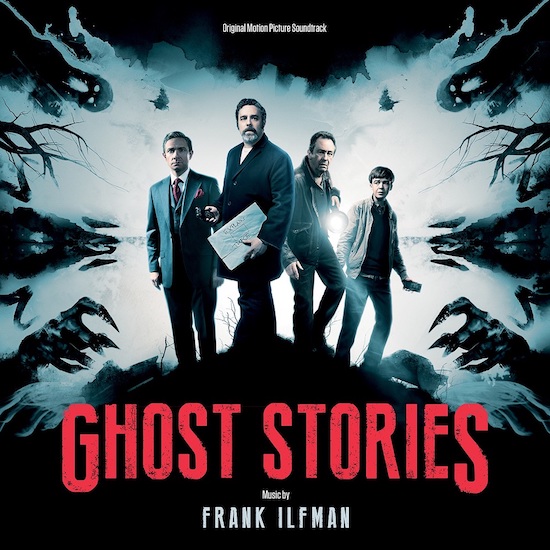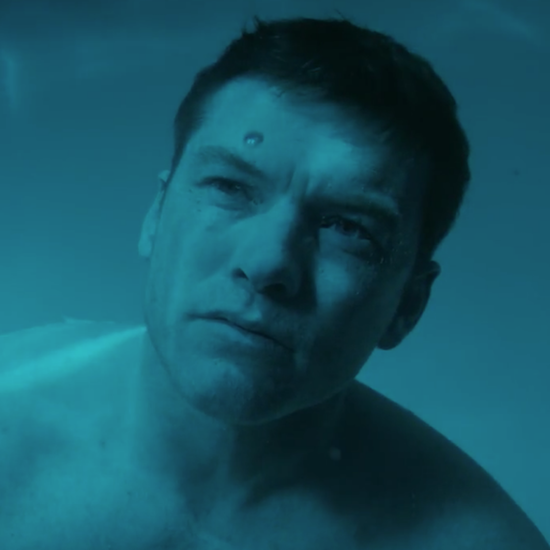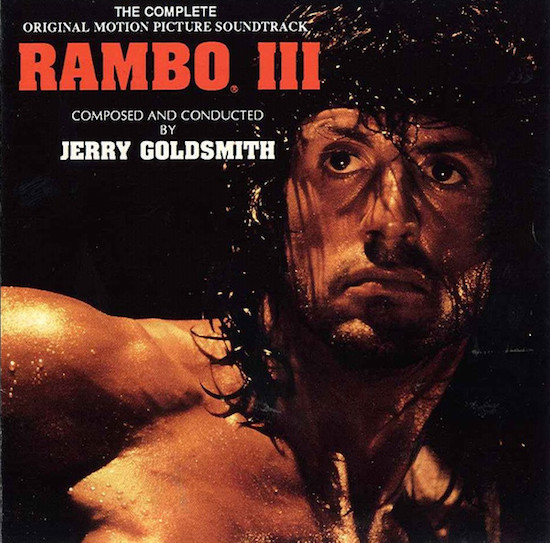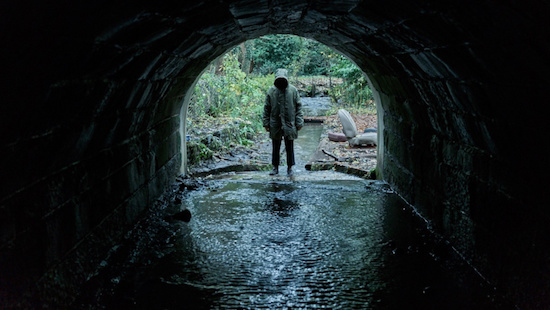Greetings and salutations, and welcome to Moviedrone, a new regular column that will hopefully sate your appetites for music from the world of film through reviews and awkward humour.
Soundtracks are pretty popular now, mostly down to the vinyl explosion, so you have labels like Death Waltz and Mondo and Dagored and others whose output is exclusively soundtrack-based, folks like Invada who release new and old soundtracks alongside their own acts, and the big ones like UMG who mainly want to cash in. But what if you don’t have a record player or can’t afford to splash out thirty quid an album? Luckily you have the massive world of digital, where you have a ton of labels throwing stuff out all the time along with old workhorses like Silva Screen and Varèse Sarabande, who often release their records on several formats at a time. The compact disc is still popular with most of the boutique labels such as La-La Land, Intrada, and Quartet, and they put out some amazing releases. The only downside is that many of them are in the States, so you’re going to be paying some mental shipping charges, which is not what anyone wants to hear.
But that aside, the soundtrack and score world as it now is pretty healthy. Of course, there’s always going to be doomsayers – I could be writing a column about collecting stamps and there’d still be some wanker talking about how it was better back when you had to lick them. But you have a good selection in both the mainstream and the more indie world; I mean, just recently we’ve had multiple scores from the likes of Jonny Greenwood and Alexandre Desplat, fine music by Geoff Barrow and Ben Salisbury and Clint Mansell, and are getting ready for the summer blockbuster with Michael Giacchino, John Powell, and John Williams having work waiting in the wings. There is one thing that has me a bit worried, and it’s also something that also has the movie world aflutter in general: streaming.
No matter what value we ourselves place on soundtracks, they were still created, effectively, to be a marketing tool. “Hear the music, watch the movie!” It’s just a lovely by-product that they’ve become a way to allow an audience to hear the music outside of the film, which is especially handy if the movie is terrible or if the music is treated badly in the film itself. But with the cinema landscape now changing dramatically thanks to Netflix, are these promotional tools still needed? One notable case is Mute, the latest science fiction flick from Duncan Jones that premiered on Netflix in February. Like Jones’ earlier picture Moon, Mute‘s score was composed by the great Clint Mansell, one of the most respected composers in the business. But where is the soundtrack? It’s nowhere to be seen, which is surprising considering just how many movies these days do actually receive albums (a massive amount compared to how it used to be) and also with Mansell’s stature as not only a bigshot composer, but also one of the crossover artists from the world of pop music and his previous role with Pop Will Eat Itself.
Luckily we did get an album from the Barrow and Salisbury movie Annihilation, but that also had a theatrical release in the US. Barrow’s label have also released Netflix records in the past, notably Mansell’s fantastic Black Mirror: San Junipero, so it may be down to labels to try and get this stuff out as it should be. Lakeshore have been responsible for releasing Netflix material as well, and you wonder if Mute was just a one-off or if there was something connected to the undeserved critical savaging it received that meant there was no need for anything “promotional”. I can only speculate, so it might be worth sending your requests for information to Edith Bowman, who at least has a copy of the soundtrack.
NEW SCORES

Frank Ilfman’s score to UK scare picture GHOST STORIES (Varèse Sarabande, out now) is not only creepy, spooky, and mysteriously ooky, but also wonderfully elegant. Ilfman is clearly having fun with some of the expected genre tropes – the cues which some might class as “sound design” are terrifically eerie and creative, and genuinely made me feel uncomfortable – and is happy to go over the top when needed, something which, though it helps the score as an isolated listen, sis not always successful when it comes to horrow movie music. But Ilfman has conjured up something fantastic, and even the presence of the dreaded dialogue snippets or Anthony Newley’s cover of the Frankie Avalon cut ‘Why?’ cause little harm. I’m not sure about ‘The Monster Mash’ though…

The latest Blumhouse yarn TRUTH OR DARE (Back Lot Music, out now) feels like it has a similar dichotomy to its title. Matthew Margeson’s score is fine in places and there’s a sense of the organic and synthetic being split fairly definitively. While the melodic parts don’t feel like the most original in the world, they’re a lot nicer to listen to than the Zimmer-esque action tracks. Marco Beltrami’s A QUIET PLACE (Milan, out now) suffers from the same thing, although it certainly fairs a lot better, with a music box melody more interesting than anything in the previous. It sounds slightly out of tune, so while it’s beautiful you sense there are cracks in there that might tell something of a story itself, and as it develops and modulates further it becomes a steady backbone for the score. That musical anchor is needed as the narrative intensifies further, and it’s interesting that it doesn’t end with respite. I’m not sure if that’s a good thing or not.

Speaking of intense, you have Kreng’s soundtrack to LOWLIFE (Lakeshore, out now). Kreng’s score grabs you from the opening with a heavy riff that saws back and forth and feels like it’s trying to tunnel into your brain. Once it’s in there, it gives you solo piano to lull you into a false sense of security before the sawing returns and you’re enveloped by cacophony. It’s actually pretty well balanced, and with guitar and strings running interference for the saw, it tends to keep you on your toes, especially when it starts descending into hell. That’s a good thing, by the way. Alexandre Desplat’s ISLE OF DOGS (ABKCO, out now ) is maybe less precocious than you might expect from a Wes Anderson soundtrack, flitting between Desplat’s drum-dominated original score and cuts from Kurosawa movies like Seven Samurai and Drunken Angel. The quirkier side certainly comes through with the Sauter-Finegan Orchestra’s rendition of ‘Midnight Sleighride’ from Prokofiev’s Lieutenant Kijé, but the main attraction is Desplat, who, along with his Oscar win for The Shape of Water, has been a consistently fine composer for many years now.

On the subject of albums from Netflix movies, we have the soundtrack to THE TITAN (Lakeshore, out April 27) which is another science fiction movie, but hopefully better than The Cloverfield Paradox. Scored by Czech-British composer Fil Eisler, Titan has a fairly large and enveloping futuristic sound that doesn’t sound like a knock-off, a definite plus when dealing with this kind of subject. That said, there’s a nod to that sense of scale and openness that Mansell and Cliff Martinez both perfected with The Fountain and Solaris respectively. Eisler, in turn, brings to that a claustrophobic feel, with electronics seeping in to make the cues more desperate. If you’re feeling cynical you can also detect a bit of TRON: Legacy, but you can say that about half of the science fiction scores composed since 2010. However there’s an echo here, a notion of the ethereal, and an intimacy combined with that, which makes The Titan a very worthy listening experience.

On the reissue front, the Hollies are nowhere to be seen in this new remastered edition of RAMBO III (Intrada, out now) – but that’s a good thing, as it just leaves us Jerry Goldsmith’s impressive score to absorb. Goldsmith was still experimenting fiercely and the score features a sophisticated blend of orchestral and electronic instruments, producing a unique timbre and somewhat of a return to the melancholic voice that made Rambo who he was originally. Still, this is first and foremost an action score, and Goldsmith musically lands many an explosive-tipped arrow without relying too much on previous themes.


